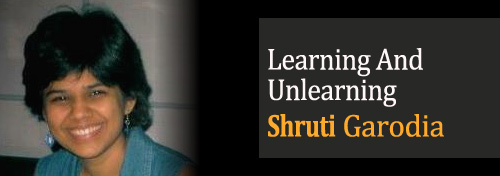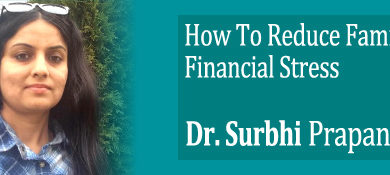Learning And Unlearning
There is one scene from the popular film Chak De India that always leaves me with a wistful smile. In the beginning of the film, a fiery hot-headed hockey player is haggling with a rickshaw driver over the fare.
Her mother intervenes, only to be interrupted with this taunt, “Why aren’t you putting this driver in place instead of only reprimanding me?” The mother promptly replies, “He’s my child or you are my child!” There is little the child can respond with.
I have similar conversations with the mother, almost thrice a week, if not more. The mother is my harshest critic. Quick to notice a fault, even quicker to reprimand me. In that moment, the world ceases to exist. It’s just me and her. Me wincing, wishing I could undo the moment, the mother busy in self-doubt, and earnestly hoping that I’ll mend my ways.
I’m forthright with my disgust toward some folks. I can be rude and abrupt, convinced that they are not worth my patience or kindness when they want to tear me apart with their callous, ruthless comments or treat me unjustly. And I will admit this to her. Like a warning of sorts, before she hears of my harsh words from someone else, all the while thinking that she’d appreciate my honesty. Instead, she will purse her lips together, wondering where she has gone wrong with me. Her only response is, “I didn’t raise you to be rude to folks. You owe me and yourself something, if not them.”
She is probably right, but I’m not willing to reconcile to it just yet. True, she didn’t bring me up to be rude to folks. But at the same time, she brought me up with a strong instinct of self-preservation. And in my scheme of things, I have to be outright abrupt with some folks in order to preserve my sanity. I don’t go looking for a fight. But if rubbed the wrong way, I will stand up for myself and fight, while the mother wishes I’d be a bit more docile and patient.
We were in the middle of one such long dialogue, extended over a couple of days, when I came across a quote, “How someone treats you is a reflection of them and not you as a person.” It’s almost as if the universe had conspired with the mother to get this message across to me. I mulled over that quote for a while. Some truth there. But it takes so much restraint that I think I’ll explode from holding all that within. But then again, I don’t even have a counter argument against that.
And then a few days later, a friend pointed out that if not anything, I could pretend to be all Zen-like and perhaps revel in the moral high ground. ‘Forgive them for they know not what they do.’ Or, ‘Do what you like, but I’m above all this.’ Not the best way to tackle this but I think I’m making some progress.
I’m trying not to get provoked, to pretend that I don’t care. It’s taking a lot out of me but I’m learning to be a little more forgiving, to be a little more content with the self. And someday, I’ll finally understand that why toward the end of Chak De, the same woman has now switched places with her mother.
Ma, I promise that one day we will be them.
Shruti Garodia is the 20-something daughter of an exasperated mother. When not sparring with the mother, she reads, tweets and occasionally blogs.


